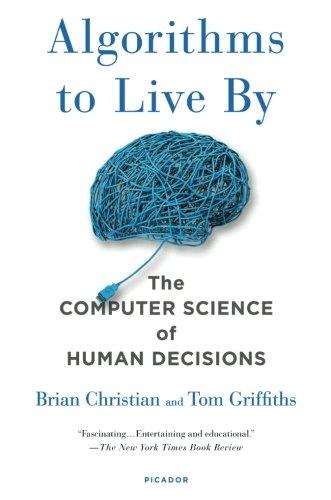內容簡介
內容簡介 有些問題,我們總以為只有人類才能如此思考,但其實不然。十幾年來,電腦科學家都在研究電腦的思考方式。而他們的發現,這些資料也能反過來教身為人類的我們許多東西。作者Brian Christian和Tom Griffiths帶我們看機器人們如何回答非常人性化的問題、如何展現第六感、如何也把問題留給機率。看它們面臨難以抉擇的境地時,如何反應,如何知道和別人一起合作時,才能達到最佳表現。從本書的電腦智慧中,我們也能探索人類生存的方向。What should we do, or leave undone, in a day or a lifetime? How much messiness should we accept? What balance of the new and familiar is the most fulfilling? These may seem like uniquely human quandaries, but they are not. Computers, like us, confront limited space and time, so computer scientists have been grappling with similar problems for decades. And the solutions they've found have much to teach us.In a dazzlingly interdisciplinary work, Brian Christian and Tom Griffiths show how algorithms developed for computers also untangle very human questions. They explain how to have better hunches and when to leave things to chance, how to deal with overwhelming choices and how best to connect with others. From finding a spouse to finding a parking spot, from organizing one's inbox to peering into the future, Algorithms to Live By transforms the wisdom of computer science into strategies for human living.
作者介紹
作者介紹 Brian Christian is the author of The Most Human Human, a Wall Street Journal bestseller, New York Times editors� choice, and a New Yorker favorite book of the year. His writing has appeared in The New Yorker, The Atlantic, Wired, The Wall Street Journal, The Guardian, and The Paris Review, as well as in scientific journals such as Cognitive Science, and has been translated into eleven languages. He lives in San Francisco.Tom Griffiths is a professor of psychology and cognitive science at UC Berkeley, where he directs the Computational Cognitive Science Lab. He has published more than 150 scientific papers on topics ranging from cognitive psychology to cultural evolution, and has received awards from the National Science Foundation, the Sloan Foundation, the American Psychological Association, and the Psychonomic Society, among others. He lives in Berkeley.
